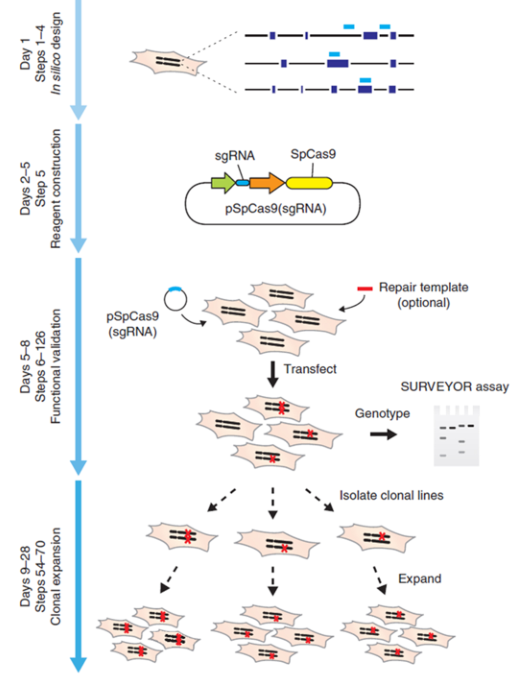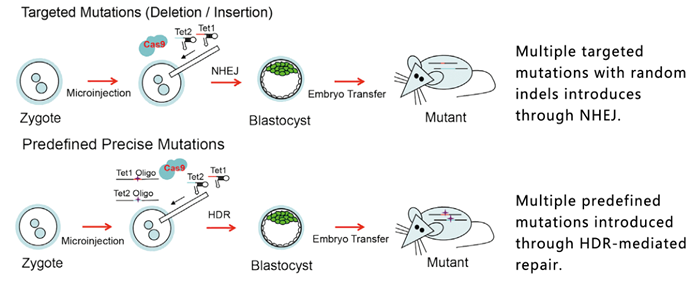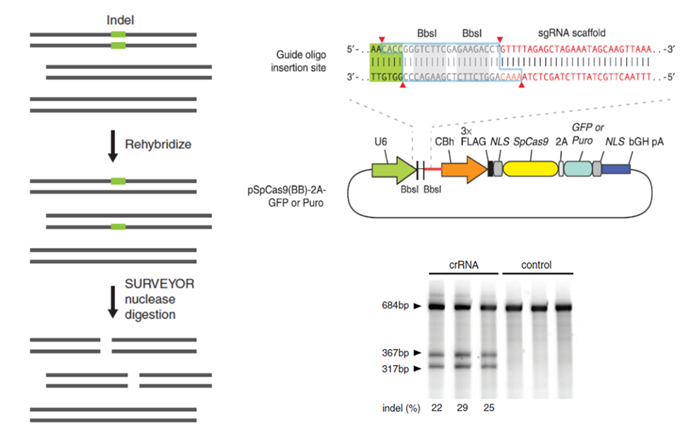|
CRISPR-based Genome editing technology
CRISPR (Clustered Regularly Interspaced Short Palindromic Repeats) is a microbial nuclease system involved in the defense against invading phages and plasmids. CRISPR loci in microbial hosts contain a combination of CRISPR associated (Cas) genes, as well as non-coding RNA elements capable of programming the specificity of the CRISPR-mediated nucleic acid cleavage. Using the CRISPR/Cas 9 system with tens of thousands of guides that are designed to target all coding genes in the human genome allows researchers to conduct genome-scale gain- and loss-of function genetic screens.

One-step Generation of Mice with Multiple Mutations

Surveyor Assay

Cat. # |
Products |
Quantity |
Price (USD$) |
Production Time (Working Days) |
C11001 |
gRNA plasmid |
50ug |
250 |
7 |
C11002 |
gRNA Cas9 plasmid |
50ug |
375 |
7 |
C11003 |
double gRNA Cas9 plasmid |
50ug |
635 |
14 |
C11004 |
T7-gRNA, sp6-gRNA plasmid |
50ug |
250 |
7 |
C11005 |
T7-Cas9, sp6-Cas9 plasmid |
50ug |
125 |
3 |
|
